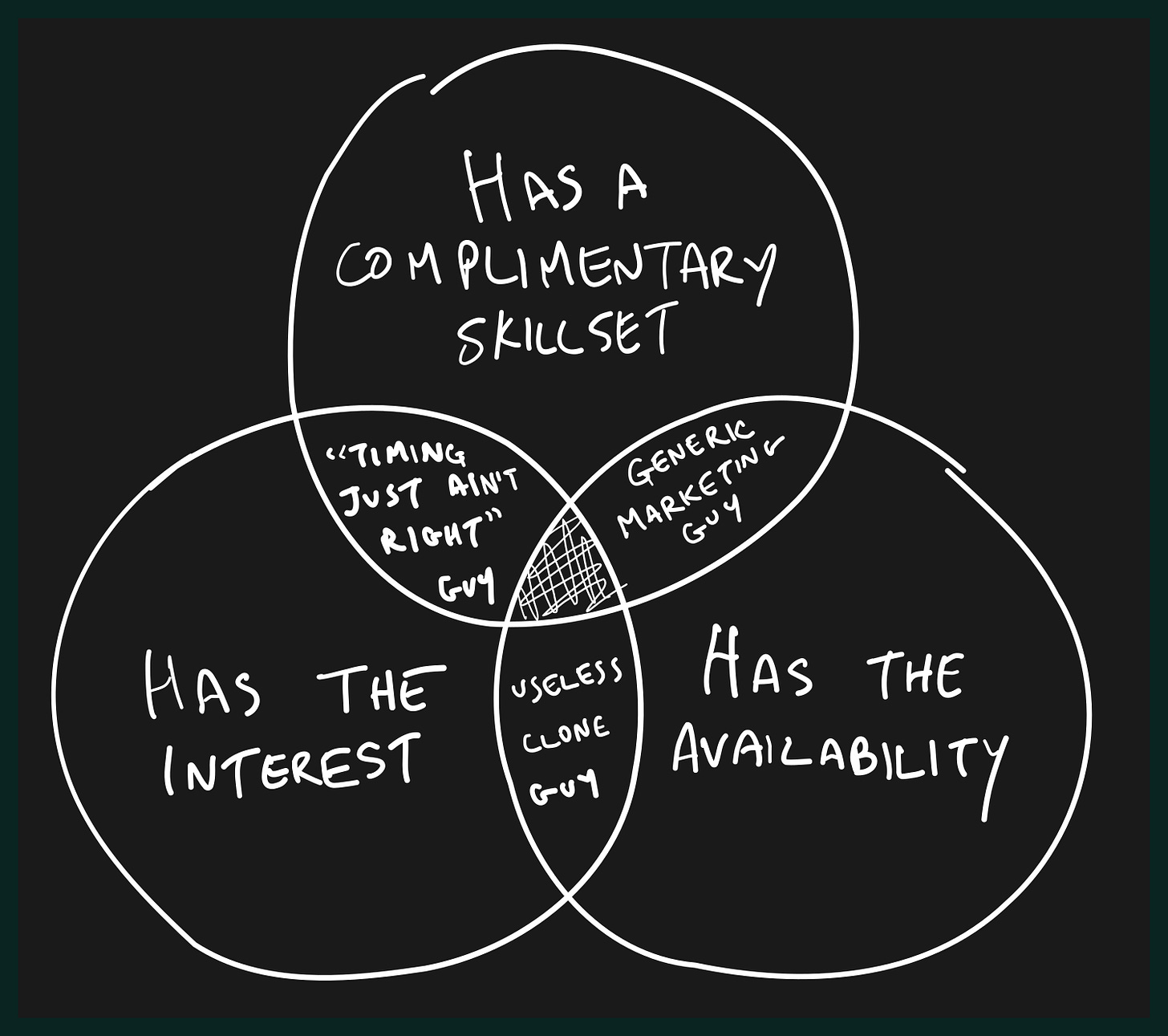Looking for a cofounder + “must read” book recommendations
Help me grow Habit Reframe... also, discover the 4 essential Books on Habits, Addiction, and Self-Improvement.
Scroll down to part 2 if you opened this for the book recommendations.
Part 1: I’m looking for a cofounder.
I want (and need) some help.
I’m searching for someone to help grow and nurture the Habit Reframe brand, as well as promote and sell its upcoming products and services.
I've been craving a shared-profit type partnership for a while now. It would be incredible to have someone who can assist with the myriad of tasks I need to tackle, while also providing fresh perspectives, bouncing ideas, and ensuring the right objectives are prioritized.
The reason I've been hesitant is that I'm somewhat pessimistic about finding such a person—or if they do exist, whether I have the reach to get their attention. However, a smart friend of mine insisted that it wouldn't hurt to try.
So here it goes. I essentially need to find the person at the center of this Venn diagram:
Complementary skillset: You possess solid digital marketing skills, and you might even excel in areas such as social media growth, graphic design, communications/PR, and/or small business management.
Interest: You share my obsession with self-improvement and productivity. You might even be eager to break into the self-help industry. If you've read some of my work and want to help extend its reach while adding your own perspective, this opportunity is for you.
Availability: You currently have 10+ hours per week to dedicate to this project, and you'll have even more when things take off. I'm seeking someone who is willing and able to invest in this venture alongside me, contributing to big picture ideation and strategies as well as handling the necessary action steps.
If this sounds like you—and I know you're out there :.)—please reply to this email.
Part 2: Book Recommendations:
As I delve deep into research for my course, I've decided to revisit a few books that have profoundly shaped my thinking on habits, addiction, mental health, and productivity. It's important for me to extract maximum value from them and give proper credit where it's due.
So, here are the four self-improvement books I consider absolute "must-reads," especially if you identify as someone addicted to technology.
"We Are the Luckiest" by Laura McKowen:
This is one of my favorite books—a powerful sobriety memoir that extends its impact to all addictions, including tech and social media.
Read this if you desire a raw and honest account of addiction and recovery that delves deep into the emotional and psychological aspects of the journey. McKowen shares her personal experiences, exploring the challenges, pitfalls, and ultimate triumph of finding sobriety (which can also apply to what I call "digital sobriety").
If you're seeking a relatable and heartfelt narrative that offers hope and inspiration, this book is a must-read for anyone struggling with persistent habits, especially those feeling consumed by their relationship with technology.
"Indistractable" by Nir Eyal:
Read this if you're seeking practical advice on how to break free from the constant distractions of technology and regain focus and control in your life. Eyal provides a comprehensive guide to understanding the psychology of distraction, which he defines as the actions that move us away from living as our best selves.
Through a combination of research-backed insights and actionable strategies, Eyal helps you develop new habits, set boundaries, and effectively manage your time. Personally, I use his Time-Boxing technique to structure my day.
Whether you're struggling with addictive technology use or simply want to improve your ability to concentrate and be present, this book provides a roadmap to reclaiming your attention and living a more fulfilling life.
"The Hacking of the American Mind" by Dr. Robert Lustig:
Read this if you're curious about the impact of modern society on our mental well-being, including our addictive tendencies. Dr. Lustig explores how the increasing prevalence of processed foods, digital distractions, and societal pressures have "hijacked" our brain's reward systems, leading to the dual epidemics of addiction (too much pleasure through dopamine) and depression (not enough happiness through serotonin).
Drawing on neuroscience, psychology, and sociology, Dr. Lustig concludes the book with insightful strategies to regain control over our pleasure-seeking impulses and cultivate true happiness.
"The Biology of Desire" by Marc Lewis:
Read this if you're curious about the science behind addiction and seek a comprehensive understanding of its biological underpinnings. Lewis takes a unique approach by examining addiction as a learned behavior rather than a disease, exploring the interplay between neurobiology and personal experience. Through captivating stories and scientific research, he provides insights into the brain's reward system and how it contributes to the development and maintenance of addictive behaviors.
This book offers a thought-provoking perspective on addiction and is essential reading for anyone interested in unraveling its complexities, including individuals struggling with technology addiction.
So, that's it for now. If you found this useful, please hit the heart icon as it helps Substack’s algorithm recommend my stuff to others. It also makes me feel special—like getting a sticker for your third-grade homework.
All the best,
Simon



